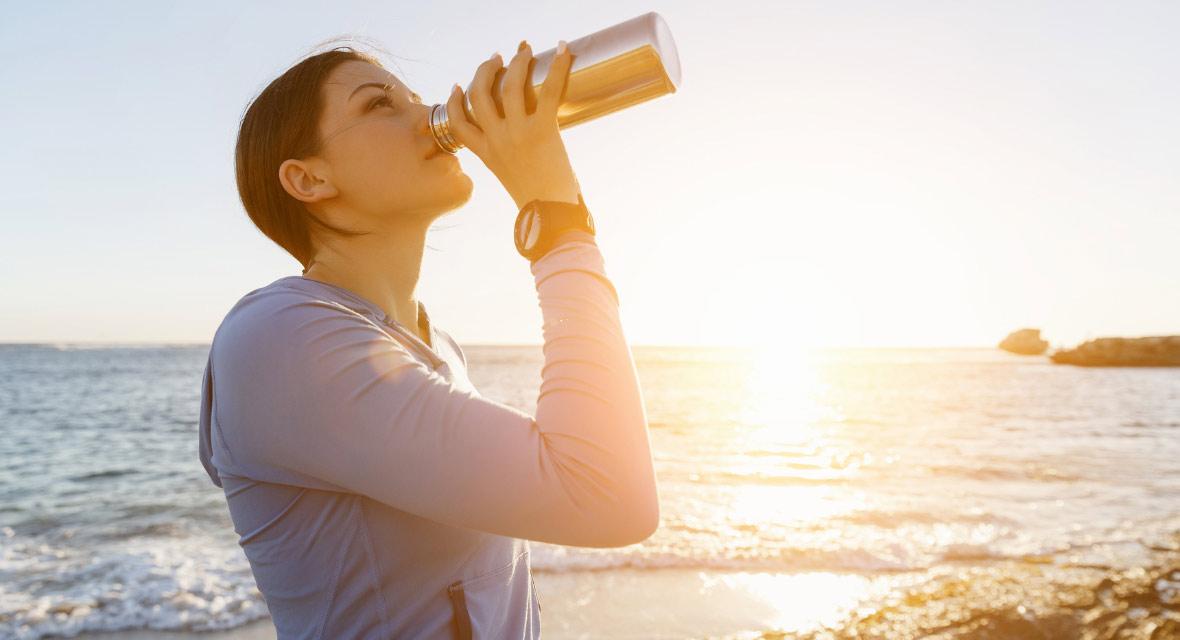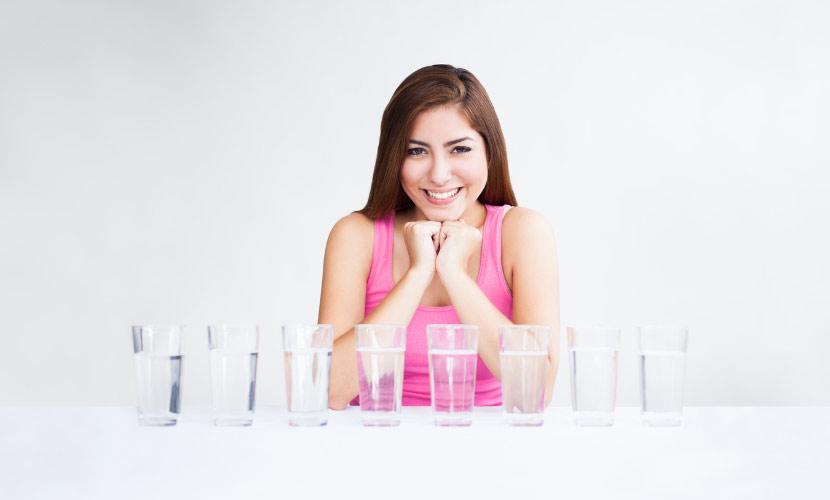🏆 As seen and loved on Shark Tank Dubai 🏆

7 Common Myths about Dehydration
Common misconceptions about dehydration you need to identify
“Stay hydrated” has become a famous catchphrase. But when there is information to enlighten people, there is also misinformation spread around. Hence, it gets tough to distinguish between fact and fiction. Numerous misconceptions are roaming about dehydration. But, how dangerous is it to believe them with your eyes closed?
As said by the ancestors, you should never believe something without checking its accuracy. Science has effectively proved the importance of water for us in several ways. On the other hand, it has also busted various myths regarding dehydration. To point a few, below are the myths and facts that everyone must know about dehydration.
7 myths and facts about dehydration
You are not dehydrated unless you are thirsty
Thirst doesn't correlate with hydration every time. Fluid levels tend to drop by around 2% to 3% of the body weight before you get to realize your thirst. This fact gets more specific as one ages. This happens as natural thirst diminishes over time.
Another better way to judge your hydration levels is through the colour of your urine. If you drink enough fluid and are well-hydrated, then it will be clear and pale in color. However, if it is dark-colored with brown tones, there are chances of dehydration.
Although following a specific high-protein diet or consuming vitamin supplements can also cause changes in urine color. For that reason, you must consult with your dieticians regarding how much protein your body needs. If your water consumption is adequate, you might have to visit the loo more often.
Drink more water as there is no limit
You may be drinking excess water than flushing it out. It is known as hyponatremia, also called water toxicity. It is a condition where sodium levels in the body are deficient. This water toxicity causes a host of physical symptoms, from convulsions, nausea, and headaches to fatalities.
Hyponatremia is more common in certain persons than it is in others. Patients with renal failure, Addison's disease, and congestive heart failure are frequently among those who fall into this category. Endurance athletes, particularly rookie runners, are sometimes found to be vulnerable. This is why, when an athlete's diet plan is charted, along with food, the amount of water and other beverages is also included.
If you don't suffer from any of the risks mentioned above, you should not worry about water toxicity. The reason behind this is kidneys can excrete additional fluids in healthy people. This excretion helps to maintain the proper balance of electrolytes. Hence, there are fewer chances of dehydration among them.
Sports drinks must be the go-to rehydrate option after a workout
TV commercials try their best to convince the importance of electrolyte-enhanced sports drinks. They strongly claim it to be the best choice to refuel your body after working out or any activity. But these renowned beverages indeed contain ingredients that are harmful to your health.
They include hydrogenated oils that are bad for the thyroid. At the same time, the presence of an excessive amount of sugar and High-Fructose Corn Syrup (HFCS) can cause an unexpected rise in blood sugar levels.
However, these drinks can replenish the electrolytes and fluid the body loses during long and rigid sessions. But make sure to read the nutrition levels thoroughly before opting for them. It is better to go with healthy beverages with low-sugar versions and no artificial additives products. Otherwise, if you practice shorter version activities, then water is the best thing to stick to. You can add mint leaves, fresh lemons, cucumbers, watermelon, or berries for flavor.
Only consumption of liquid helps you stay hydrated
It's good to drink water all day, but it's not the only way to keep your body hydrated. Around 20% of the fluid is gained from foods with higher water content. These include watermelon, cucumbers, spinach, celery, grapefruit, and strawberries. You can even have stews, soups, and broths to boost your fluid in the winter.
On the other hand, salty and sodium-rich meals dehydrate. This occurs because when salt is absorbed and circulated in the blood, the body responds by taking water out of the body's cells to balance things out, resulting in increased thirst.

Eight glasses of water per day is compulsory
Each person has their hydration requirement. This need varies based on health, age, diet, medications, and activity level. The climate you reside in also plays a huge role. If you're staying somewhere humid, you'll need to drink extra water to stay hydrated.
According to research, you should take one-third of your body weight and drink that many ounces of water daily. For the calculation of daily fluid consumption, it is preferable to consult an expert or healthcare practitioner.
For improved accuracy, they may also ask for your medical history. Besides, certain drugs might put you at risk of dehydration.
Coffee tends to dehydrate
According to a long-held belief, caffeine is thought to act as a diuretic in the body. As a result, it depletes your essential fluid supply. This is why excess consumption of coffee is not recommended. Besides, it can also severely affect your sleep cycle. In fact, it is one of the foods you need to avoid for building muscles.
You can drink a maximum of two cups of coffee a day. This amount of intake won't affect your dehydration levels. However, the less, the better.
Dehydration is not dangerous
Mostly, people experience symptoms like sluggishness, decreased urine, or headache if dehydrated. But it can get severe and even require medical attention. The treatment of dehydration often varies on symptoms and the individual.
Mild dehydration with symptoms like muscle cramps, fatigue, dry mouth, and headaches are easy to treat. Consumption of water or drinking electrolyte-containing beverages can cure this type of dehydration. Older people with mild dehydration can track improvement right after 5-10 minutes of consuming fluids.
However, moderate to severe dehydration with symptoms like low blood pressure, mobility problems, etc., requires special attention. They need the administration of subcutaneous infusion of fluids or IV fluids (Intravenous Fluids). There can be a requirement for additional interventions in case of acute dehydration.
Conclusion
Dehydration is a prevalent health problem and so are misconceptions related to it. While the correct information can help you with living a healthy life, misinformation can do the opposite. So, while creating healthy meal plans , don't forget to include water and related beverages in it.
Keeping your body hydrated is equally important as keeping your tummy full. Thus, following the points mentioned above and keeping them in mind educates you about dehydration and helps you stay away from it.
Reach out to start your fitness journey with us!
Meal Plans
Delivery Details
Legal Information
© 2020-2026 VMeals. All rights reserved. VMeals™ is a trademark of Flip Side Restaurant and Cafe L.L.C
We accept
